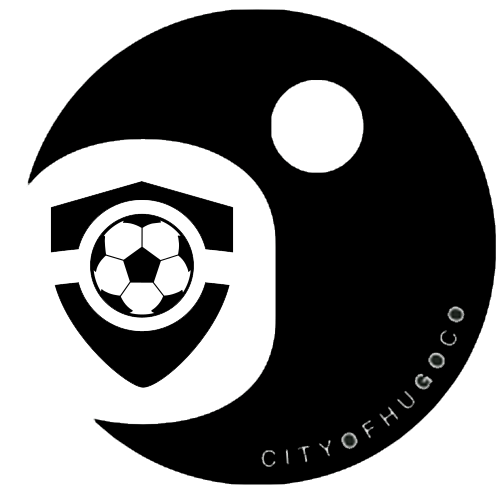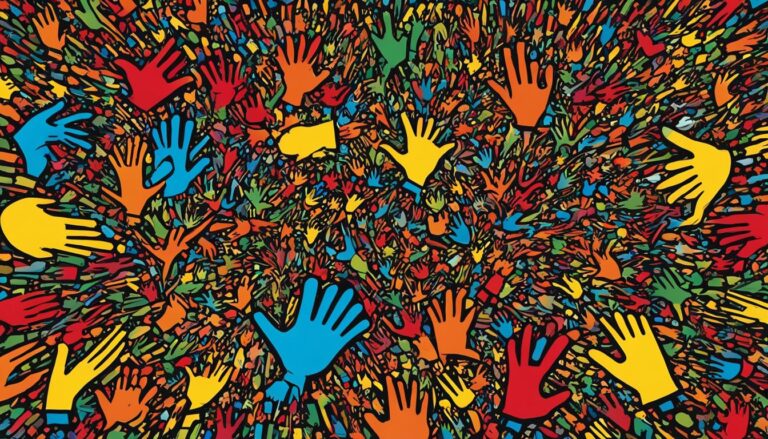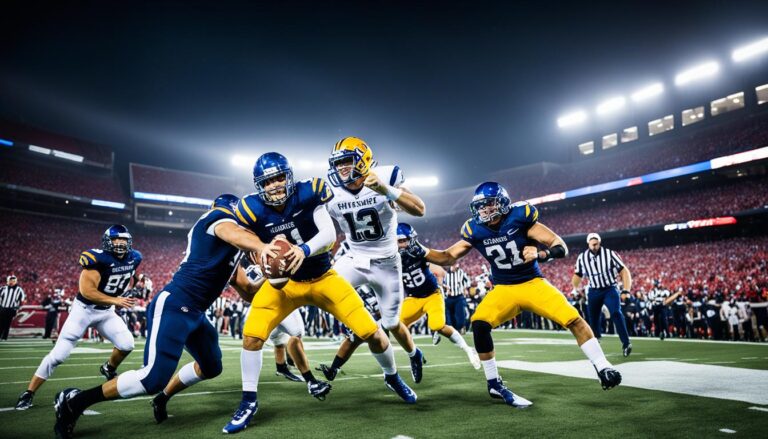Freedom and liberty are fundamental values that have shaped societies throughout history. These powerful ideals have inspired generations and continue to be a driving force for positive change. In this section, we have curated a collection of empowering quotes that capture the essence of freedom and liberty, serving as a source of inspiration for individuals who believe in the power of these principles.
These thought-provoking quotes span across different eras, cultures, and perspectives, reflecting the universal longing for freedom. As you read through these influential words, you will gain a deeper appreciation for the importance of freedom and its transformative impact on individuals and societies.
Key Takeaways:
- Empowering quotes on freedom and liberty inspire individuals and highlight the significance of these fundamental values.
- These quotes reflect different perspectives and experiences, encompassing the diverse nature of freedom.
- Freedom quotes from influential figures throughout history offer profound insights into the power of liberty.
- Inspirational quotes on freedom and liberty have the ability to ignite change and challenge societal norms.
- By embracing and cherishing freedom, we can create a future that upholds the principles of liberty for all.
The Essence of Liberty and Its Growth
Throughout history, the essence of liberty has been a driving force in shaping societies and empowering individuals. Understanding the growth of freedom is essential in appreciating its significance and protecting it for future generations. This section explores the historical perspectives on liberty and highlights the foundational growth of freedom as a fundamental human right.
Understanding The Importance of an Environment for Free Expression
Historical Perspectives on Liberty
Examining historical perspectives on liberty provides valuable insights into the evolution of this fundamental concept. Significant events, movements, and influential individuals have shaped the understanding and implementation of freedom throughout history. From the ancient societies of Greece and Rome to the Enlightenment era of the 18th century, the quest for liberty has been at the forefront of human progress.
“Liberty, when it begins to take root, is a plant of rapid growth.”
– George Washington
The American Revolution and the Declaration of Independence are prime examples of historical moments that solidified the importance of freedom as a guiding principle. These milestones not only inspired the birth of a new nation but also influenced other nations and sparked movements for liberty around the world.
The Foundational Growth of Freedom
The foundational growth of freedom is a testament to the enduring nature of this essential human right. From the abolitionist movement in the 19th century to the fight for civil rights in the 20th century, brave individuals and collective efforts have extended the sphere of freedom to marginalized communities.
Leaders like Martin Luther King Jr., Susan B. Anthony, and Nelson Mandela dedicated their lives to advocating for equality and justice, leaving an indelible mark on the growth of freedom. Their unwavering commitment to liberty reminds us of the power of individual agency and the collective pursuit of a more just society.
As society continues to progress, the essence of liberty persists as a guiding principle, leading to movements advocating for gender equality, LGBTQ+ rights, and the protection of individual liberties in the digital age.
| Time Period | Significant Event/Movement | Influential Individuals |
|---|---|---|
| Ancient Greece and Rome | Development of democratic systems | Socrates, Plato, Cicero |
| The Enlightenment | Spread of ideas on individual rights and freedoms | John Locke, Voltaire, Thomas Paine |
| American Revolution | Declaration of Independence | Thomas Jefferson |
| Abolitionist Movement | Fight against slavery | Frederick Douglass, Harriet Tubman |
| Civil Rights Movement | Advancement of racial equality | Martin Luther King Jr., Rosa Parks |
| Modern Era | Equality movements and protection of individual liberties | Ruth Bader Ginsburg, Edward Snowden |
The Power of Freedom in Words
Freedom has a remarkable ability to inspire, motivate, and shape our understanding of the world. Through the medium of literature, the power of freedom is vividly captured, allowing readers to delve into its profound impact on society and individuals. From timeless classics to contemporary works, literary quotes on freedom offer a poignant reflection on this fundamental value.
Flipping through the pages of renowned novels, we encounter characters who fight for their freedom against oppressive regimes or societal norms. Take, for example, the iconic novel “1984” by George Orwell, which warns against the dangers of totalitarianism and emphasizes the importance of individual liberty. Through powerful passages and thought-provoking quotes, Orwell’s masterpiece serves as a reminder of the enduring struggle for freedom and the vital need to safeguard it.
“Freedom is the freedom to say that two plus two make four. If that is granted, all else follows.”
In the realm of poetry, freedom finds a lyrical voice that echoes across generations. Poets have long used their mastery of language to evoke emotions and stir change. The works of Langston Hughes, Maya Angelou, and Walt Whitman, among countless others, eloquently explore the varied facets of freedom and illuminate the complexities surrounding its pursuit.
Even in speeches delivered on notable occasions, freedom resonates with power and conviction. In his famous “I Have a Dream” speech, Martin Luther King Jr. passionately articulated his vision of a future where individuals are judged by the content of their character, not the color of their skin. This iconic speech, filled with powerful freedom quotes, continues to inspire and galvanize individuals in the ongoing fight for equality and justice.
The impact of freedom quotes extends beyond the confines of literature and into our daily lives. They have the power to challenge conventional wisdom, ignite hope, and instill a sense of responsibility. At times when freedom is threatened, these quotes serve as rallying cries, reminding us of the ideals worth defending and the inherent dignity of every individual.
As we immerse ourselves in the world of literary quotes on freedom, we gain a deeper appreciation for the significance of this fundamental value. They serve as a testament to the enduring power of words to shape our thoughts, beliefs, and actions. Through the pages of books, the lines of poetry, and the echoes of speeches, the power of freedom reverberates, inspiring generations to strive for a better, freer world.
Quotes on Freedom and Liberty from Visionaries
This section features a collection of quotes on freedom and liberty from visionaries and influential figures from the past and present. These quotes offer profound insights and wisdom, highlighting the value and significance of freedom in society. Through the voices of these luminaries, readers can gain a deeper understanding of the empowering nature of quotes and the impactful role they play in inspiring individuals and shaping the course of history.
Insights from Luminaries of the Past and Present
“The only way to deal with dictators is to surpass them in valor and energy, in creativity, in fortitude, in unity, and in sacrifice.” – Simon Bolivar
“Freedom is never more than one generation away from extinction.” – Ronald Reagan
“In the truest sense, freedom cannot be bestowed; it must be achieved.” – Franklin D. Roosevelt
These quotes from prominent historical figures serve as a reminder of the enduring importance of freedom and the courage required to preserve it. Their words reflect the struggles and triumphs in the pursuit of liberty and inspire us to continue fighting for a world where freedom remains a fundamental right.
Empowerment through the Voice of Experience
“Those who deny freedom to others deserve it not for themselves.” – Abraham Lincoln
“Freedom means choosing your burden.” – Hephzibah Menuhin
“The ultimate measure of a man is not where he stands in moments of comfort and convenience, but where he stands at times of challenge and controversy.” – Martin Luther King Jr.
These quotes from experienced individuals highlight the transformative power of freedom and the responsibility that comes with it. Through their wisdom, they encourage us to make choices that uphold the principles of liberty and to stand firm in the face of adversity. Their words serve as a guide, empowering us to navigate the complexities of freedom and ensure its preservation for future generations.
| Luminary | Quote |
|---|---|
| Simon Bolivar | “The only way to deal with dictators is to surpass them in valor and energy, in creativity, in fortitude, in unity, and in sacrifice.” |
| Ronald Reagan | “Freedom is never more than one generation away from extinction.” |
| Franklin D. Roosevelt | “In the truest sense, freedom cannot be bestowed; it must be achieved.” |
| Abraham Lincoln | “Those who deny freedom to others deserve it not for themselves.” |
| Hephzibah Menuhin | “Freedom means choosing your burden.” |
| Martin Luther King Jr. | “The ultimate measure of a man is not where he stands in moments of comfort and convenience, but where he stands at times of challenge and controversy.” |
The Interplay of Freedom, Safety, and Security
This section delves into the intricate relationship between freedom, safety, and security. It examines how these three concepts are interconnected and how finding the right balance is crucial for the well-being of individuals and society as a whole.
The importance of liberty cannot be overstated. It is a fundamental value that allows individuals to exercise their rights, express themselves freely, and live life on their own terms. Liberty brings about empowerment, creativity, and the ability to pursue one’s dreams and aspirations.
On the other hand, safety and security are also essential for the overall functioning of society. They provide a sense of stability, protection, and order that enable individuals to live without constant fear or threat. While freedom allows for personal expression and autonomy, safety and security ensure that individuals live in a society free from harm and danger.
However, finding the right balance between freedom and safety can be a challenge. Sometimes, preserving individual liberties requires sacrifices for the sake of safety and security. In times of crisis or threat, certain measures may need to be put in place to safeguard the well-being of the community as a whole. This delicate balance often requires careful consideration, weighing the value of freedom against the need for safety.
It is important to recognize that sacrificing too much freedom in the pursuit of safety can have adverse effects on society. Overbearing security measures can erode personal liberties, leading to a loss of civil rights and the suppression of individual voices. Striking the right balance is crucial to ensure that both freedom and safety are upheld.
Ultimately, the interplay between freedom, safety, and security is a complex and dynamic process. It requires constant evaluation, adaptability, and a shared understanding of their importance. By recognizing the significance of individual liberty and the sacrifices sometimes necessary for safety, society can navigate this interplay and create an environment where both freedom and security thrive.

The Influence of Literary Figures on Our Understanding of Liberty
Classic literature and modern voices within the literary world have played a significant role in shaping our understanding of liberty. Through their insightful works, literary figures have explored the complexities of freedom, challenged societal norms, and inspired readers to reflect on the importance of this fundamental value.
Classic Literature and the Quest for Freedom
Classic literary works have often centered around the quest for freedom, capturing the struggles and triumphs of individuals yearning to break free from oppression or societal constraints. These timeless stories resonate with readers, offering profound insights into the human spirit and the universal desire for liberty.
Authors such as Herman Melville in “Moby-Dick” and Mark Twain in “The Adventures of Huckleberry Finn” explore themes of individual autonomy and the pursuit of personal freedom. These literary masterpieces not only entertain but also challenge readers to question the status quo and consider the true meaning of liberty.
Classic novels like George Orwell‘s “1984” and Aldous Huxley‘s “Brave New World” caution against the dangers of totalitarianism and the erosion of individual freedoms. These thought-provoking works serve as powerful reminders of the importance of remaining vigilant in the face of threats to liberty.
Modern Voices on the Liberty Narrative
Contemporary literature continues to contribute to our understanding of freedom by exploring new perspectives and challenging established norms. Modern voices within the literary world bring fresh insights and shed light on the complexities of liberty in the context of our evolving society.
Writers like Chimamanda Ngozi Adichie and Ta-Nehisi Coates address social and racial inequalities, drawing attention to the ways in which these issues intersect with the concept of freedom. Their works, such as Adichie’s “Americanah” and Coates’ “Between the World and Me,” prompt readers to confront uncomfortable truths and consider the role of freedom in shaping a more equitable society.
Furthermore, authors like Margaret Atwood with “The Handmaid’s Tale” and George Saunders with “Lincoln in the Bardo” challenge readers to contemplate the potential consequences of limiting personal freedoms and the importance of guarding against complacency.
These modern voices on the liberty narrative inspire readers to engage in critical thinking, fostering a deeper understanding of freedom and its significance in the face of contemporary challenges.
| Literary Figure | Notable Work | Theme |
|---|---|---|
| Herman Melville | Moby-Dick | Quest for personal freedom |
| Mark Twain | The Adventures of Huckleberry Finn | Challenging societal norms and prejudices |
| George Orwell | 1984 | Threats to individual liberties and dangers of totalitarianism |
| Aldous Huxley | Brave New World | The erosion of personal freedoms in a dystopian society |
| Chimamanda Ngozi Adichie | Americanah | Intersection of social and racial inequalities with freedom |
| Ta-Nehisi Coates | Between the World and Me | Exploring the complexities of freedom in America |
| Margaret Atwood | The Handmaid’s Tale | Consequences of limiting personal freedoms |
| George Saunders | Lincoln in the Bardo | Guarding against complacency and the importance of freedom |
Through the influence of literary figures, both from classic works and modern voices, literature plays a crucial role in deepening our understanding of freedom. It challenges our perspectives, forces us to examine societal structures and norms, and inspires us to protect the liberties that define our humanity.
The Multifaceted Nature of Freedom
Freedom, a fundamental value cherished by individuals and societies alike, is a concept that encompasses a myriad of perspectives and dimensions. The multifaceted nature of freedom can be understood through various lenses, each offering a unique insight into its profound meaning and implications.
When contemplating the multifaceted nature of freedom, it is crucial to recognize that different perspectives on liberty emerge from diverse aspects of human existence. These aspects encompass not just political freedom, which guarantees the right to vote and participate in decision-making processes, but also encompass social freedom, which promotes equality and inclusivity, and personal freedom, which empowers individuals to express themselves authentically.
The diverse aspects of freedom serve as pillars that support a society grounded in justice, opportunity, and respect for individuals’ autonomy and dignity.
To further illustrate the multifaceted nature of freedom, consider the following table:
| Aspect of Freedom | Description |
|---|---|
| Political Freedom | Enables individuals to participate in political processes, exercise their right to vote, and express their opinions without fear of reprisal. |
| Social Freedom | Ensures equal opportunities and social justice for all members of society, irrespective of their backgrounds, identities, or beliefs. |
| Personal Freedom | Allows individuals to embrace their unique identities, pursue their passions, and make choices that align with their values and aspirations. |
As depicted in the table above, the multifaceted nature of freedom encompasses different aspects that collectively contribute to a society’s well-being and progress.
In understanding freedom from its varied dimensions, it becomes apparent that the preservation and promotion of freedom require a holistic approach that recognizes and respects diverse perspectives. By acknowledging the multifaceted nature of freedom, societies can strive for a more inclusive, just, and harmonious world.

Conclusion
This concluding section reflects on the profound power of freedom quotes and their enduring impact on individuals and society. The collection of empowering quotes discussed throughout this article serves as a reminder of the importance of freedom and liberty in American society.
The essence of freedom, imbued in the words of visionaries, writers, and historical figures, resonates across time and continues to inspire generations. These quotes illuminate the path to a future where freedom thrives and provides a foundation for progress and human flourishing.
As we reflect on these powerful words, it becomes evident that the preservation and championing of freedom is a collective responsibility. It is crucial for us, as individuals and as a society, to carry the torch of liberty forward into the future.
By valuing and upholding the principles of freedom, we ensure the well-being of future generations. Let us remember the sacrifices made by those who fought for freedom and work together to protect and preserve this invaluable gift.
FAQ
What are some empowering quotes on freedom and liberty?
Here are a few empowering quotes that capture the essence of freedom and liberty:
How has liberty grown throughout history?
Liberty has grown through significant events, movements, and the contributions of individuals who have shaped the concept of freedom. It has evolved into a foundational value that we cherish and strive to protect.
What is the historical perspective on liberty?
Throughout history, liberty has been a central theme in the fight for independence, the struggle against oppression, and the recognition of basic human rights. It has played a crucial role in shaping societies and shaping the course of history.
How have quotes on freedom and liberty impacted society?
Quotes on freedom and liberty have been powerful tools for inspiring individuals, challenging societal norms, and advocating for change. These impactful quotes have the ability to shape perceptions, mobilize movements, and ignite conversations about the importance of freedom.
Who are some visionaries and influential figures who have spoken on freedom and liberty?
Some visionaries and influential figures who have shared their wisdom on freedom and liberty include Benjamin Franklin, Abraham Lincoln, Barry Goldwater, and George Orwell. Their insights provide valuable perspectives on the value and significance of freedom.
How does freedom interact with safety and security?
The interplay between freedom, safety, and security is a complex balancing act. While individual liberties are fundamental, societies often make sacrifices to ensure the safety and security of their citizens. Finding the right balance is crucial in maintaining a free and secure society.
What is the role of literature in shaping our understanding of liberty?
Literature has played a significant role in exploring and challenging the concept of freedom. Classic works have often centered around the quest for freedom, while modern voices continue to contribute to the ongoing narrative on liberty.
In what ways can freedom be understood?
Freedom can be understood through various perspectives and dimensions. It can encompass political freedom, social freedom, and personal freedom, highlighting its multifaceted nature and the different ways in which it can be experienced.
























+ There are no comments
Add yours